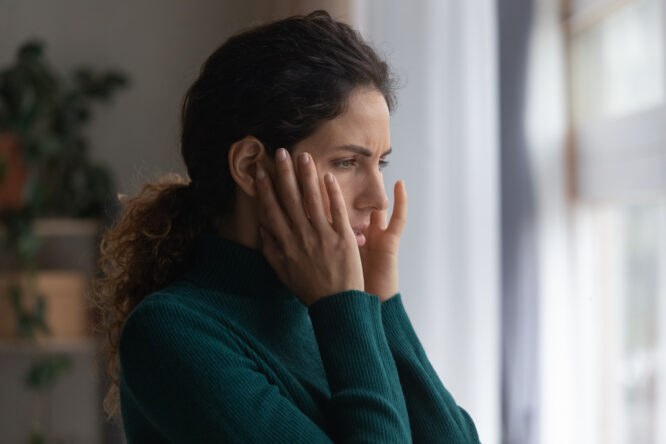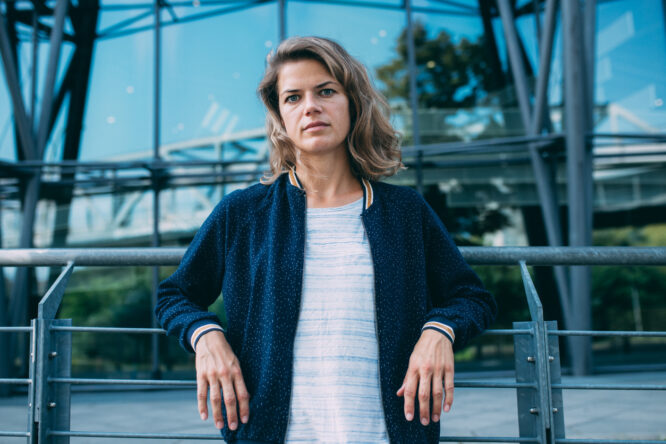There’s a lot of pride in being independent, and honestly, doing things on your own can feel empowering.

However, when flying solo becomes the only way you operate, there are hidden downsides that you’re probably not even aware of. Again, no one’s saying you shouldn’t be self-sufficient, but recognising that sometimes you need other people is important, too. Here’s why doing everything alone isn’t always as great as it sounds.
1. You start thinking asking for help is a weakness.

When you’re used to handling everything yourself, the idea of asking for help can start to feel wrong, like you’re admitting defeat instead of just being human. It’s a quiet, exhausting kind of pressure that builds up over time. Eventually, you stop reaching out even when you actually need support. Independence is powerful, but it can turn into isolation if you convince yourself you have to prove something by never needing anyone.
2. Burnout becomes a lot harder to avoid.

Taking care of everything alone means there’s no one to share the load when life gets heavy, and it always gets heavy at some point. Without backup, even small stressors can pile up fast. Burnout doesn’t usually show up with flashing warning signs. It sneaks in quietly until suddenly, you’re exhausted, resentful, and wondering why you feel so disconnected from the life you worked so hard to build.
3. You miss out on the magic of collaboration.

There’s something really powerful about bouncing ideas off someone else, sharing a project, or building something together. When you do everything solo, you miss out on the creative energy that can only happen when two (or more) minds meet. Working with other people isn’t about losing control. It’s about discovering possibilities you might never have seen on your own. It’s where sparks fly, new ideas are born, and connections deepen in ways you can’t manufacture alone.
4. You start to carry emotional loads that aren’t yours.

When you’re the go-to “strong one” all the time, people naturally lean on you more, and without meaning to, you can end up carrying emotional weight that isn’t actually yours to bear. It’s noble to want to be there for people. But doing it without limits wears you down fast, leaving you drained and resentful while everyone else assumes you’re fine because you “always are.”
5. Your world quietly shrinks without you noticing.

When you’re so used to relying only on yourself, you can get stuck in routines and habits that feel safe but limit your world. Without new perspectives and shared experiences, life can start to feel oddly small. It doesn’t happen overnight. It’s a slow, subtle thing. One day, you wake up and realise it’s been a while since you felt truly surprised, challenged, or inspired by anything outside your usual comfort zone.
6. Loneliness creeps in even if you don’t want to admit it.

Being alone isn’t the same as being lonely, but if you’re doing everything solo all the time, loneliness can sneak up on you, even if you pride yourself on your independence. It’s easy to tell yourself you’re just busy, focused, or fine on your own. But eventually, that lack of deeper connection starts to sting, even if you’ve got really good at pretending it doesn’t.
7. You can become overly self-critical without realising it.

When no one else is in the mix, it’s easy to blame yourself for every mistake, every slow step, every imperfect outcome. Without someone else to offer perspective, your inner critic tends to get louder and harsher over time. Doing everything alone sometimes means there’s no one to balance out your harshest self-judgements, and after a while, that can wear away at your confidence and make you doubt your own instincts more than you deserve to.
8. You miss out on letting people show up for you.

One of the best parts of being connected to other people is letting them show up for you, not because you’re weak, but because love, friendship, and support are two-way streets. Doing everything alone denies people the chance to love you actively. It keeps relationships lopsided and denies you the real comfort of being cared for in ways you didn’t even know you needed.
9. Problem-solving becomes way harder than it needs to be.

Sometimes fresh eyes and outside perspectives solve problems in ways you would never have thought of alone. When you insist on handling everything solo, you limit your problem-solving toolbox without even realising it. Two heads really are better than one sometimes, not because you can’t do it yourself, but because life is easier (and often better) when you don’t insist on carrying every puzzle piece alone.
10. Small successes start feeling less satisfying.

There’s something extra sweet about sharing victories, whether it’s big career wins, small personal milestones, or just getting through a rough patch. When you’re alone, those moments can feel a little… muted. Celebrating with other people multiplies the joy. It turns “I did it” into “We did it”—and no matter how independent you are, feeling part of something bigger than yourself makes life richer and more meaningful.
11. You lose practice in trusting other people.

Trust is like a muscle, and if you never use it, it atrophies. Doing everything alone might protect you from being let down, but it also quietly teaches you to stop trusting people altogether. Eventually, that mistrust builds walls you didn’t mean to build. Letting other people help, even in small ways, keeps that trust muscle strong, and keeps you open to the connections that make life feel less heavy.
12. Growth gets slower without feedback.

Feedback isn’t always easy to hear, but it’s essential for real growth. When you’re working, living, and solving everything alone, you miss out on the insights, challenges, and encouragement that help you level up faster. Other people see things you can’t always spot yourself. Being open to feedback doesn’t weaken your independence. It makes you sharper, stronger, and way less stuck in blind spots you didn’t even know you had.
13. The pressure to always be okay becomes exhausting.

When you’re the only one responsible for everything, admitting you’re struggling feels terrifying. You start believing you always have to be strong, capable, and “fine,” even when you’re anything but. That pressure builds quietly until it becomes unbearable. Sharing the load, even just by admitting you’re not okay sometimes, is a way of protecting your energy, not betraying your strength.
14. Joy feels less full when there’s no one to share it with.

Some moments are too big, too beautiful, too bittersweet to hold alone. Achievements, surprises, beautiful sunsets, inside jokes—they’re all sweeter when they’re shared with someone who gets it. Living entirely alone can rob those moments of their full depth. You can still enjoy them, sure, but having someone to laugh with, cry with, or just say “Can you believe this?” to makes the good parts of life even better.
15. You risk confusing independence with isolation.

There’s a huge difference between healthy independence and unhealthy isolation, but the line between them gets blurry fast if you’re not careful. What starts as “I’m doing my thing” can slide into “I’m doing everything alone because I feel like I have to.” Checking in with yourself regularly—asking whether you’re choosing independence or slipping into loneliness—helps keep your solo streak empowering instead of quietly hollow.
16. You forget that letting people in is part of being alive.

At the end of the day, we’re wired for connection. Even the most fiercely independent people still need other people in ways that go deeper than convenience or practicality. It’s part of being human. Letting people in, even a little, doesn’t make you weak. It makes you real. It reminds you that strength isn’t about doing everything alone; it’s about knowing when to let love, support, and connection in when you need it most.




